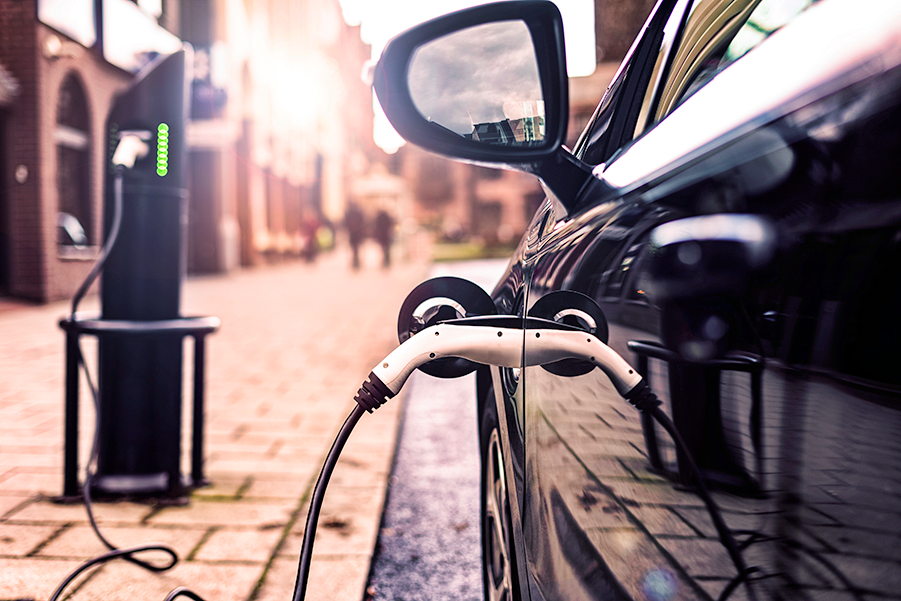
By Isabelle Szmigin, Professor of Marketing
The Department of Marketing, Birmingham Business School
About 3 years ago we started to drive a Tesla. At first I was sceptical; I thought this will not be powerful and more importantly how far will it go? But while it hasn’t changed my life, my view of electric cars (and petrol cars) has changed forever.
The internal combustion engine has been with us for over a century. In spite of the fact that to power the average 10,000 parts in a typical car it relies on hundreds of small explosions per minute of highly inflammable fuel. Consumers have the idea well embedded in their psyches that a car needs a mechanical engine and combustible fuel.
On the other hand, batteries (which are the fundamental part of an electric car) are used to power our mobile phones and children’s toys, and seem to run out at the most inconvenient moments. So, can we really take batteries seriously as an alternative to the combustion engine? In a world where climate change is at last being taken seriously, they do have advantages over fossil fuels.
The first practical electric cars were invented in Britain by Thomas Parker around 1884, however the lack of electrical infrastructure meant that by 1910 most electric car manufacturers had gone out of business.
Yet a Bloomberg Surveillance podcast last week featured a motor analyst who confidently stated that the motor industry is now prepared for the fact that new cars will be predominantly electric by 2040.
So what has happened? Three things came together to turn the traditional petrol/diesel/LPG motor industry on its head and move to a new electric world:
Turning points in the motor industry
- First, there was the introduction of Tesla’s model S. A fast, large, well-designed tailgated saloon that was a comfortable cruiser which, could also out-accelerate a Porsche. Its estimated cost of fuel is around 5 pence per mile, plus owners have access to free superchargers at selected motorway services as well as other built-in luxuries. It caught the imagination of early adopters.
- Secondly, the VW diesel emissions scandal which shocked the public as it showed that the “old” motor industry was prepared to cheat government emissions tests, particularly on Nitrogen Dioxide (“NO2”) emissions. NO2 has been found to be massively over statutory maximums in city streets; it is NO2 that contributes to over 72,000 EU-wide premature deaths a year and London has one of the highest street-side levels of NO2.
- Thirdly, the concept of driverless cars caught the attention of Uber, Google, mass-transportation players, and haulage companies. It is now a major investment magnet creating its own momentum. Driverless cars could obviate the need for consumers to buy a car at all, as they can just call one whenever they like. Another advantage is autonomous technology integrates better with electric engines.
Where does the uncertainty lie with consumers?
While consumers still face the barrier of acquisition cost, the benefits of low running costs of electric cars make them attractive; a study by Morgan Stanley suggests that internal combustion engines will cost the same as electric vehicles by 2024.
Another cited barrier to adoption is range anxiety. The fact is that today’s fully electric and hybrid cars have pretty amazing ranges; the 2119 Nissan Leaf has a range of over 230 miles and the latest Tesla’s over 300 miles. For most people driving around town this will be sufficient, for longer trips though, a little planning is required. Yes, you do have to wait a while at charging stations, but I have found the half an hour rest is probably beneficial on a long drive.
What is the realistic outlook for electric cars?
Tesla has already built and sold 250,000 cars. China is their second largest market after the US. In 2018 over 2 million plug in cars were sold worldwide. In the UK, by the end of 2018 almost 60,000 electric cars had been registered over the year, compared to 13,000 the previous year, and while there were only around 500 electric cars registered per month in 2014, this had increased to 5,000 per month in 2018.
I think the experience of driving an electric car will finally win consumers over. For Jeremy Clarkson, driving a Tesla appeals to his inner nine year old, but for me, it is speed, comfort, and general good behaviour. Plus, you can pack a lot of shopping into its two boots.
